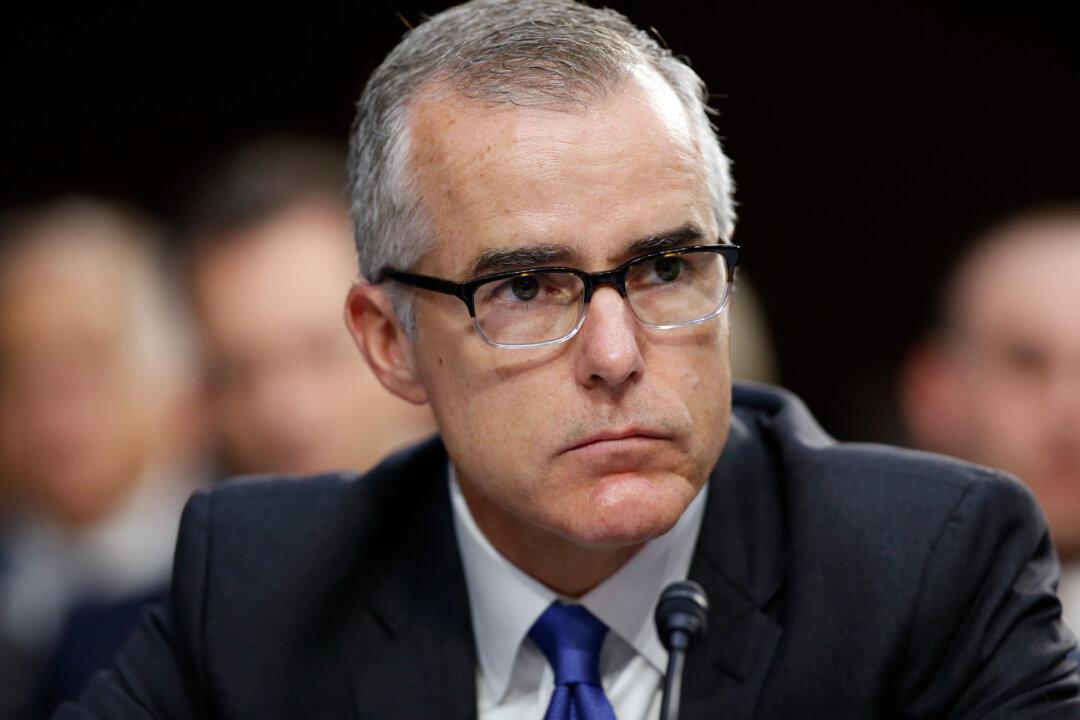Former acting FBI Director Andrew McCabe said in a 2017 interview released on Thursday that the FBI was unable to “prove the accuracy of all of the information” contained in the Steele dossier—the material that the FBI used to help obtain surveillance warrants to spy on former Trump campaign aide Carter Page.
McCabe was interviewed by the House Intelligence Committee on Dec. 19, 2017 as part of its investigation into allegations of Russian interference in the 2016 U.S. presidential elections, including possible links between Russia and any political campaigns. His closed-door interview (pdf) was among the dozens that were released to the public on Thursday after a protracted classification review of the transcripts.




